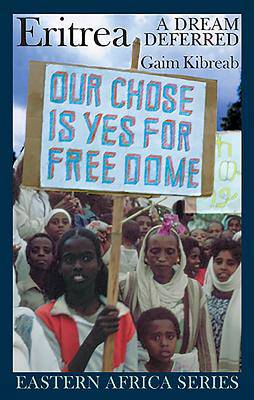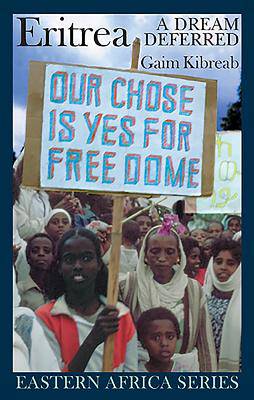
- Retrait gratuit dans votre magasin Club
- 7.000.000 titres dans notre catalogue
- Payer en toute sécurité
- Toujours un magasin près de chez vous
- Retrait gratuit dans votre magasin Club
- 7.000.0000 titres dans notre catalogue
- Payer en toute sécurité
- Toujours un magasin près de chez vous
97,95 €
+ 195 points
Description
This book gives a detailed description of Eritrea's post-war politics and is the first comprehensive analysis of the country's economy. Eritrean independence under the Eritrean People's Liberation Front (now the People's Front for Democracy and Justice) became an international cause celebre during the 1980s. Eritrea was the first African nation to gain independence in the post-colonial period and appeared to be opening a new and progressive path in African politics. But the promise of the revolution was soon betrayed by the outbreak of war with Ethiopia, the PFDJ's increasingly repressive domestic policies, its mismanagement of the country's economy, and its hostile relations with its neighbours.
The PFDJ government dismantled existing formal and informal institutions, crippled the private sector, banned private newspapers, civil and political society organisations, expelled international NGOs and aid agencies when over two-thirds of the population were dependent on food aid, detained without trial journalists, thousands of dissidents, and former leaders of the liberation struggle, and turned national service from an instrument of nation building and national integration into an instrument of open-ended forced labour.
In this well-researched first account of post-independence Eritrea, Gaim Kibreab gives a detailed and critical analysis of how things went woefully wrong and how the former 'liberators' turned into oppressors with no respect for the rule of law, human rights andreligious freedom. GAIM KIBREAB is Professor of Research & Director of Refugee Studies, Department of Social & Policy Studies, London South Bank University Published in association with the Nordiska Afrikainstitutet.
The PFDJ government dismantled existing formal and informal institutions, crippled the private sector, banned private newspapers, civil and political society organisations, expelled international NGOs and aid agencies when over two-thirds of the population were dependent on food aid, detained without trial journalists, thousands of dissidents, and former leaders of the liberation struggle, and turned national service from an instrument of nation building and national integration into an instrument of open-ended forced labour.
In this well-researched first account of post-independence Eritrea, Gaim Kibreab gives a detailed and critical analysis of how things went woefully wrong and how the former 'liberators' turned into oppressors with no respect for the rule of law, human rights andreligious freedom. GAIM KIBREAB is Professor of Research & Director of Refugee Studies, Department of Social & Policy Studies, London South Bank University Published in association with the Nordiska Afrikainstitutet.
Spécifications
Parties prenantes
- Auteur(s) :
- Editeur:
Contenu
- Nombre de pages :
- 446
- Langue:
- Anglais
- Collection :
- Tome:
- n° 5
Caractéristiques
- EAN:
- 9781847010087
- Date de parution :
- 17-09-09
- Format:
- Livre relié
- Format numérique:
- Genaaid
- Dimensions :
- 218 mm x 142 mm
- Poids :
- 748 g

Les avis
Nous publions uniquement les avis qui respectent les conditions requises. Consultez nos conditions pour les avis.






